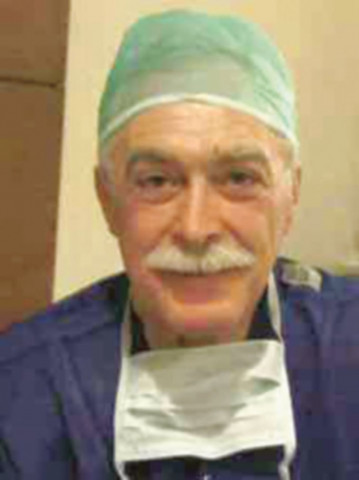Colorectal cancer: younger and younger patients
Doctors notice a rise in colorectal cancer among young adults between the ages 22 to 24 years.

Dr David Charles Bartolo is a consultant colorectal surgeon and honorary senior lecturer from the University of Edinburgh. Currently, he is visiting Karachi for a very specific purpose - to train and equip local surgeons with new skills and techniques to fight this growing disease. On the occasion of the fifth annual surgical week for colorectal diseases being held at the Jinnah Postgraduate Medical Centre (JPMC) The Express Tribune caught up with him to get an insight into colorectal cancer which is becoming a “serious cause of concern” for doctors and surgeons in Pakistan.
The symptoms for (colo)rectal cancer are a change in bowel movement. This is technically known as ‘altered bowel habit’. This implies that the person’s bowel movements fluctuate between intense constipation at one time while suffering excessive diarrhoea at another. Weight loss is another sign, as is loss of appetite, infrequent bloating and blood in the stool. Leaving the last indicator out, the remaining are what doctors call ‘constitutional symptoms’ meaning they apply to the development of most cancers.
A potentially major factor attributed to the rise and spread of this disease is the westernisation of the Pakistani palette (which is low in fibre content), according to Bartolo, who adds that colon cancer is ranked the third most common cancer, among men and women, worldwide. Statistics from the National Cancer Institute reveal the estimated number of new cases and deaths from colon and rectal cancer in the United States during 2010 at 51,370. Bowel cancer is also common among men due to lack of exercise.
In Pakistan as well, Bartolo warns, men with “big tummies” need to be careful of their health as they face a high risk of the cancer. Previously the cancer was surfacing more in men over 45 years. Other factors which put you at risk are eating lots of red meat, high fat content in your diet, skipping out on the veggies and smoking and alcohol also play a major part.
However, Bartolo also discussed the possibility of a genetic cause (defect) behind the cancer known as hereditary non-polyposis colorectal cancer. A possible cause for this is inter-family marriages, especially if the person is under 50 years of age. “The younger you are the more likely you are to possess this defect,” explained Bartolo, clarifying that “younger” meant someone under 30 years. Among women, following a global trend, putting their career first and having children late is a possible factor as well.
Bartolo suggests for surgeons in Pakistan to begin specialising in order to combat any growing diseases. Success can be limited when operating just as a general surgeon. He also strongly advises young adults to visit doctors immediately if they witness these symptoms. “Sometimes even when doctors check the patient’s age they don’t think the problem will be cancer and sometimes believe it is just irritable bowel syndrome but you need to investigate further to be sure,” Bartolo urged.
Published in The Express Tribune, October 7th, 2010.



















COMMENTS
Comments are moderated and generally will be posted if they are on-topic and not abusive.
For more information, please see our Comments FAQ